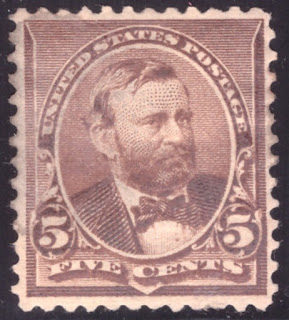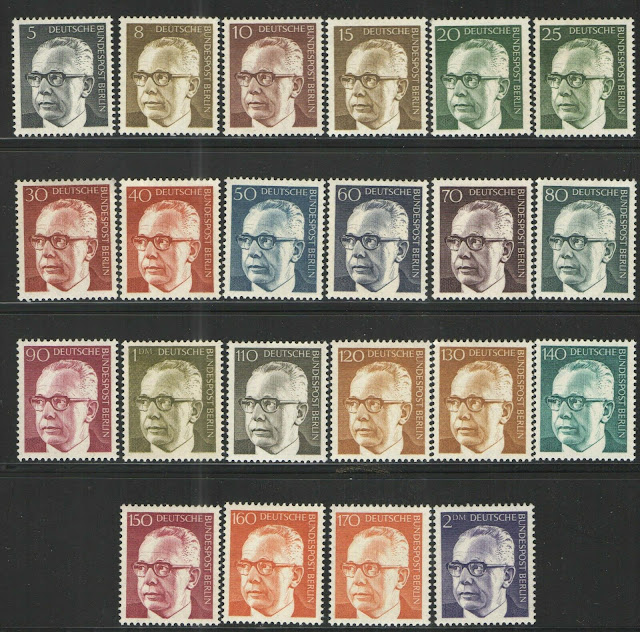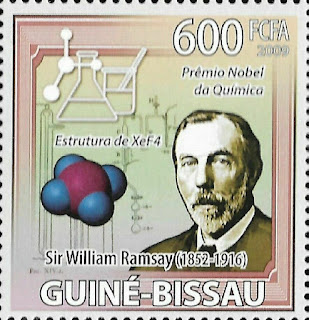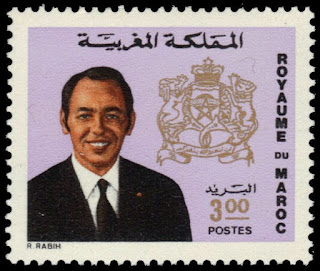1885 - President Ulysses S. Grant dies of throat cancer
Ulysses S. Grant (born Hiram Ulysses Grant; April 27, 1822 – July 23, 1885) was an American soldier, politician, and international statesman who served as the 18th president of the United States from 1869 to 1877. During the American Civil War, General Grant, with President Abraham Lincoln, led the Union Army to victory over the Confederacy. During the Reconstruction Era, President Grant led the Republicans in their efforts to remove the vestiges of Confederate nationalism, racism, and slavery.
From early childhood in Ohio, Grant was a skilled equestrian who had a talent for taming horses. He graduated from West Point in 1843 and served with distinction in the Mexican–American War. Upon his return, Grant married Julia Dent, and together they had four children. In 1854, Grant abruptly resigned from the army. He and his family struggled financially in civilian life for seven years. When the Civil War broke out in 1861, Grant joined the Union Army and rapidly rose in rank to general. Grant was persistent in his pursuit of the Confederate enemy, winning major battles and gaining Union control of the Mississippi River. In March 1864, President Lincoln promoted Grant to Lieutenant General, a rank previously reserved for George Washington. For over a year Grant's Army of the Potomac fought the Army of Northern Virginia led by Robert E. Lee in the Overland Campaign and at Petersburg. On April 9, 1865, Lee surrendered to Grant at Appomattox, and the war ended.
After a year-long struggle with throat cancer, surrounded by his family, Grant died at 8:08 a.m. in the Mount McGregor cottage on July 23, 1885, at the age of 63.[530] Sheridan, then Commanding General of the Army, ordered a day-long tribute to Grant on all military posts, and President Grover Cleveland ordered a thirty-day nationwide period of mourning
Some US stamps depicting Ulysses S. Grant
1899 Born: Gustav Heinemann, German lawyer and politician, 3rd President of West Germany
Gustav Walter Heinemann (23 July 1899 – 7 July 1976) was a German politician. He was Mayor of the city of Essen from 1946 to 1949, West German Minister of the Interior from 1949 to 1950, Minister of Justice from 1966 to 1969 and President of the Federal Republic of Germany (West Germany) from 1969 to 1974.
Some German and Berlin stamps depicting Gustav Walter Heinemann
1914 – Austria-Hungary issues a series of demands in an ultimatum to the Kingdom of Serbia demanding Serbia to allow the Austrians to determine who assassinated Archduke Franz Ferdinand.
Serbia accepts all but one of those demands and Austria declares war on July 28.
The July Crisis was a series of interrelated diplomatic and military escalations among the major powers of Europe in the summer of 1914 that was the penultimate cause of World War I. The crisis began on June 28, 1914, when Gavrilo Princip, a Bosnian Serb, assassinated Archduke Franz Ferdinand, heir presumptive to the Austro-Hungarian throne. A complex web of alliances, coupled
with miscalculations by many leaders that war was in their best interests or that a general war would not occur, resulted in a general outbreak of hostilities among almost every major European
nation in early August 1914; every major European nation was involved by May 1915.
Austrian military stamps depicting Archduke Franz Ferdinand and his wife Sophie
See also The revenge of Yugoslavia on Bosnian stamps of 1906 which shows the aftermath of this war on stamps
1916 Died: William Ramsay, Scottish-English chemist and academic, Nobel Prize laureate (b. 1852)
Sir William Ramsay (2 October 1852 – 23 July 1916) was a Scottish chemist who discovered the noble gases and received the Nobel Prize in Chemistry in 1904 "in recognition of his services in the discovery of the inert gaseous elements in air" along with his collaborator, John William Strutt, 3rd Baron Rayleigh, who received the Nobel Prize in Physics that same year for their discovery of argon. After the two men identified argon, Ramsay investigated other atmospheric gases. His work in isolating argon, helium, neon, krypton and xenon led to the development of a new section of the periodic table.
Stamp issued by Guinea Bissau depicting William Ramsay
1999 Died: Hassan II of Morocco (b. 1929)
King Hassan II (9 July 1929 – 23 July 1999) was King of Morocco from 1961 until his death in 1999. He is descended from the Alaouite dynasty. He was the eldest son of Mohammed V, Sultan, then King of Morocco (1909–1961), and his second wife, Lalla Abla bint Tahar (1909–1992). Hassan was known to be one of the most severe rulers of Morocco, widely accused of authoritarian practices and of being an autocrat and a dictator, particularly during the Years of Lead
Hassan died of pneumonia and other health consequences in his birth town at the age of 70 on 23 July 1999. A national funeral service was held for him in Rabat, with over 40 heads of state in attendance. He was buried in the Mausoleum of Mohammed V. The coffin of Hassan II, carried by King Mohammed VI, his brother Prince Moulay Rachid and his cousin Moulay Hicham, was covered with a green fabric, in which the first prayer of Islam, "There is no god but God", is inscribed in golden writing
Some Moroccan stamps depicting Hassan II
King Hassan II (9 July 1929 – 23 July 1999) was King of Morocco from 1961 until his death in 1999. He is descended from the Alaouite dynasty. He was the eldest son of Mohammed V, Sultan, then King of Morocco (1909–1961), and his second wife, Lalla Abla bint Tahar (1909–1992). Hassan was known to be one of the most severe rulers of Morocco, widely accused of authoritarian practices and of being an autocrat and a dictator, particularly during the Years of Lead
Hassan died of pneumonia and other health consequences in his birth town at the age of 70 on 23 July 1999. A national funeral service was held for him in Rabat, with over 40 heads of state in attendance. He was buried in the Mausoleum of Mohammed V. The coffin of Hassan II, carried by King Mohammed VI, his brother Prince Moulay Rachid and his cousin Moulay Hicham, was covered with a green fabric, in which the first prayer of Islam, "There is no god but God", is inscribed in golden writing
Some Moroccan stamps depicting Hassan II









No comments:
Post a Comment